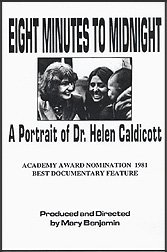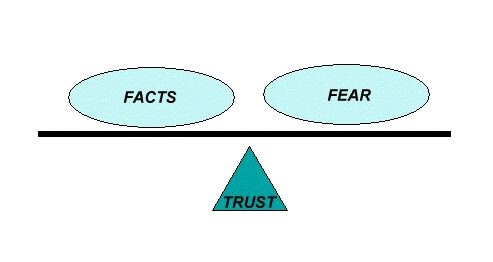Retrieved from: http://thefutureoffood.com/
 Click here to view trailer
Click here to view trailer The following was retrieved from: http://www.wired.com/
GMO - Food Foes Turn to Film
Last March, the food-safety organization GMO Free Mendocino did something no group had ever done: It ushered through a law banning genetically engineered crops and livestock.
It was a David-thrashes-Goliath victory. Opponents of the legislation, led by the agricultural trade group CropLife America, outspent the anti-GMO activists by a nearly 10-1 ratio. But GMO Free Mendocino had a secret weapon: a film, then a work in progress, called The Future of Food.
The new documentary, created by Deborah Koons Garcia, uses archival footage and interviews with farmers and agriculture experts to argue that GMO foods are jeopardizing our food safety. During the past 10 years, the film tells us, genetically engineered crops have infected our food supply and undermined cultivation methods that have been refined over thousands of years.
The Future of Food lays out a detailed case against genetically engineered crops. Exploring a gamut of issues from so-called suicide seeds to lax food-safety enforcement laws, and from the controversy over patented genes to infected cornfields, the film is a comprehensive and chilling example of anti-GMO rhetoric.
GMO Free Mendocino spokesman Doug Mosel described The Future of Food as a major factor in the passage of Measure H, which banned the use of GMO farming within Mendocino County, California.
"The Future of Food could be the Fahrenheit 9/11 of the genetically engineered food battle," Mosel said. The film is currently touring festivals and other events, including an upcoming screening in San Francisco.
Garcia, Jerry Garcia's third and final wife, has been interested in the ways plants can be mutated since childhood. At 15, she won a science fair award for an experiment involving irradiated plants, and she has followed the evolution of genetic engineering for years.
"My goal was to make a film that gave the average person a clear understanding of how genetic engineering works, from the cellular level to the global level," Garcia said. "I'm hoping this film can be a combination of Silent Spring and The Battle of Algiers. Once you see it you'll feel compelled to act, even if that means just changing the kind of food you eat."
Though The Future of Food is not intended as a two-sides-to-the-story analysis, Garcia said she requested interviews from representatives at Monsanto, the multinational seed and pesticide giant that is driving the genetically engineered food movement. She did not receive a response.
Perhaps Monsanto is trying to keep a low profile. The company has suffered a string of well-publicized setbacks to its genetically engineered crop initiatives in recent years, including closure of its GMO wheat project in May.
According to agriculture expert Chuck Benbrook, Monsanto and other biotech agriculture companies are "retrenching -- reducing their research, reducing projections for profits, watching the range of viable applications shrinking."
Benbrook served in the Carter and Reagan administrations before becoming executive director of the Board on Agriculture of the National Academy of Sciences. In his various positions, he watched as biotech companies rushed products to market. The first GMO foods reached shelves in 1997.
Though scientists were initially supportive to the point of being myopic -- Benbrook described early reports from the National Academy as "unadulterated boosterism" -- biotech foods today look less promising than they did even a few years ago. According to Benbrook, genetic engineering has failed to solve the problems advocates hoped it would. And, he added, food-safety concerns remain unresolved.
"The biotech industry is beginning to recognize that there are lots of reasons why it's hard to move genes across boundaries," Benbrook said. "Scientists have found ways around the natural protections, but there are really good reasons for them being there, and we violate them at some cost."
For five-sixths of the problems that genetic engineering promises to address, Benbrook added, genetic solutions are not necessary.
GMO companies are also finding increased resistance on the legal front. In April, Vermont became the first state to require registration and labeling of genetically modified products. According to one anti-GMO site, nearly 100 towns in New England have approved some sort of anti-GMO legislation.
Since the Mendocino law was signed, Garcia said as many as a dozen other California municipalities have drawn up similar legislation.
"The Future of Food has already helped change policy," Garcia said. "I think it is possible to make California GE-free, and it's exciting to think that the film could have some role in that."
:I'm sorry I didn't read all the blog. Your post are too big and I don't have much time to read it. Will be back soon...
Mr. DOC
<< Home















































